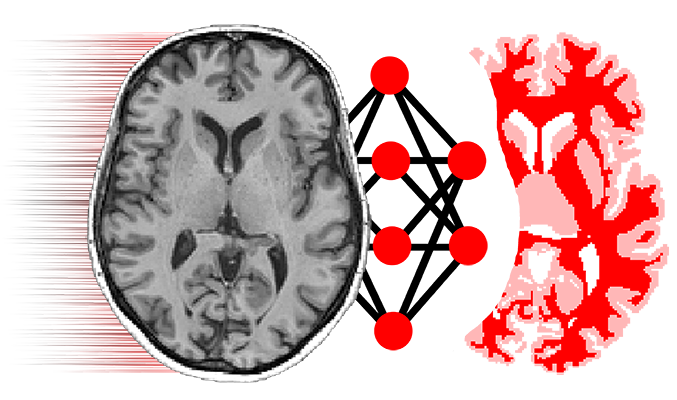niftynet.layer.affine_augmentation module¶
-
class
AffineAugmentationLayer(scale, interpolation='linear', boundary='zero', transform=None, name='AffineAugmentation')[source]¶ Bases:
niftynet.layer.base_layer.LayerThis layer applies a small random (per-iteration) affine transformation to an image. The distribution of transformations generally results in scaling the image up, with minimal sampling outside the original image.
-
__init__(scale, interpolation='linear', boundary='zero', transform=None, name='AffineAugmentation')[source]¶ Parameters: - scale – how extreme the perturbation is, with 0. meaning no perturbation and 1.0 giving largest perturbations.
- interpolation – the image value interpolation used by the resampling.
- boundary – the boundary handling used by the resampling
- name – string name of the layer.
-
inverse(interpolation=None, boundary=None, name=None)[source]¶ create a new layer that will apply the inversed version of self._transform. This function write this instance members. (calling self() after self.inverse() might give unexpected results.)
Parameters: - interpolation –
- boundary –
- name –
Returns: a niftynet layer that inverses the transformation of self.
-
-
get_relative_corners(spatial_rank)[source]¶ compute relative corners of the spatially n-d tensor:
1-D: [[-1], [1]] 2-D: [[-1, -1], [-1, 1], [1, -1], [1, 1]] 3-D: [[-1, -1, -1], [-1, -1, 1], [-1, 1, -1], [-1, 1, 1], [1, -1, -1], [1, -1, 1], [1, 1, -1], [1, 1, 1]]
Parameters: spatial_rank – integer of number of spatial dimensions Returns: [2**spatial_rank, spatial_rank] matrix
